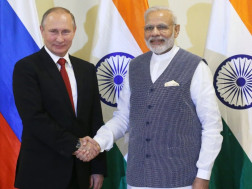The civil society organization Transparency International Georgia (TI Georgia) studied the issue of Georgia's economic dependence on Russia, as it poses a threat to the country. In particular, the data as of June 2022, on trade between Georgia and Russia, tourists, remittances, foreign direct investments from Russia, and registration of Russian companies in Georgia were analyzed by TI Georgia.
In January-June 2022, Georgia received about USD 1.2 billion in income from Russia through remittances, tourism, and commodity exports, which is 2.5 times more than the income received from Russia in January-June 2021 from the same sources. Moreover, this year’s receipts are 36% more than the income received from Russia before Covid-19 - in January-June 2019. This means that compared to previous years, Georgia's economic dependence on Russia has been increasing. This growth is mainly due to the soaring remittances. Exports of goods taken separately decreased, the report reads.
The study underscored that “only in March, April, May, and June of this year, about 6,400 Russian companies were registered in Georgia, which is 7 times more than the annual number of 2021. A total of 13,500 Russian companies are registered in Georgia, and half of them were registered after the start of the war in Ukraine;
In January-June 2022, Georgian exports to Russia decreased by 2.8% and amounted to USD 256 million. After the start of the Russia-Ukraine war, in March-June, the export decreased by 16%, which was mainly caused by the reduced export of wine and non-alcoholic beverages;
Traditionally, Georgia’s wine exports are highly dependent on the Russian market. In January-June 2022, USD 58 million worth of wine exported to Russia was 58% of Georgia's total wine exports;
In January-June 2022, imports from Russia increased by 51% and amounted to USD 706 million. The share of imports from Russia was 11.9% of the total imports of Georgia, which is the highest in the last 15 years;
After the start of the Russia-Ukraine war, the import of petroleum products (fuel) from Russia increased the most - by 280% (by USD 118 million). Electricity imports increased 4 times (by USD 9 million). Import of coal and coke increased 3 times and totaled USD 23 million;
Despite the increase in imports, Russian electricity accounts for only 3.5% of Georgia's domestic consumption. Russia's share in the domestic consumption of natural gas in Georgia is up to 8%;
Georgia's dependence on Russian wheat and wheat flour remains high. In January-June 2022, the share of Russian wheat and wheat flour in Georgia’s total import of these products was 95%;
In 2022, the growth rate of the arrival of visitors from Russia accelerated significantly, and 247 thousand visitors arrived in January-June. However, compared to January-June 2019, the number of visitors from Russia is still 3 times less. In January-June 2022, the share of Russian visitors in the total number of visitors to Georgia was 15.2%, which was lower than in 2018-2019;
In April-June 2022, remittances from Russia to Georgia increased 6.5 times and amounted to USD 678 million. The main reason for such high growth is the Russian citizens moving to Georgia, who are sending money from Russia;
In the first quarter of 2022, direct foreign investments from Russia decreased by USD 11.2 million;
Significantly increased imports of Russian goods, remittances, and establishment of companies by Russian citizens in Georgia raise the risk that Georgia will be used to circumvent sanctions imposed on Russia. Regardless of whether or not Georgia is used by a specific sanctioned individual or company for circumventing the sanctions, the increased economic ties mean that Russian businesses and citizens, in general, can use Georgia to escape the economic hardship created by the sanctions imposed on Russia.”
The authors of the study provide recommendations to the Georgian government on "what should be done to reduce economic dependence on Russia:
To reduce the trade with Russia the Government of Georgia should start working more actively and expeditiously on concluding free trade agreements with all strategic partners with whom we do not yet have such an agreement. Although such agreements will have positive effects in the long term, given the current situation, Georgia can more actively demand to accelerate the process of signing them;
Subsidies from the state budget (grants, concessional credit, etc.) should not be given to businesses that increase economic dependence on Russia. The introduction of this rule will play an important role in reducing the Georgian economy's dependence on Russia, which will increase the economic and political security of the country;
Georgia should develop a strategy to reduce its energy dependence on Russia. Although electricity and natural gas imported from Russia have not accounted for a large share of Georgia's domestic consumption in recent years, it is important to further reduce it,” the report states.
















